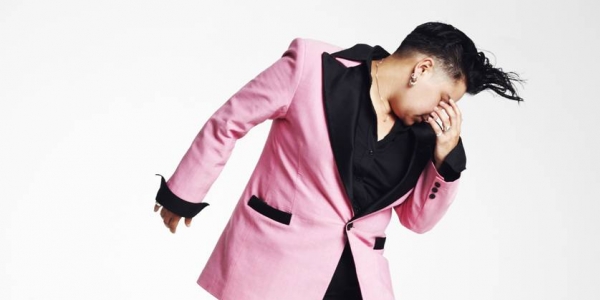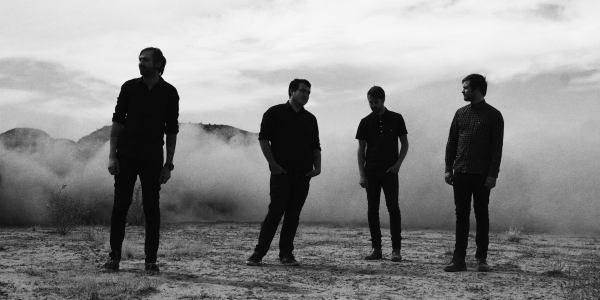But with the 50th anniversary of his death rapidly approach, the cult and influence of Elvis remains as strong as ever: the rhythm and blues riffs, the sensitive crooner, the erotic stage performer, the flamboyant singer, the iconographic public figure. In his 1991 book, Dead Elvis, American rock writer and cultural commentator explores the appropriation of Elvis’s image in the years following his death: from beautiful to ugly, from comic to tragic, from reverential to offensive. “[T]he shade of Elvis Presley is now an anarchy of possibilities,” Marcus writes, “a strain of freedom less clear, but no less suggestive, than the man ever was.”
It’s arguable that Elvis’s ongoing attraction can be pinned, in part, to the variability of his career. From the release of his first single, Love Me Tender, in 1954, to his enlistment in the United States army in 1960, and consequently his temporary retirement from music, Elvis was the picturesque personification of the elegant beauty and danger of rock’n’roll. Presley was famously filmed from the waist up, lest the sight of his writhing groin region incite a generation of teenagers to overthrow the dominant social order; yet on the Ed Sullivan show, the legendary television host described Presley as a “good kid”, a nice Southern boy whom the mothers of middle-America could learn to trust.
Upon his return to the United States, Presley was cajoled into a series of cheesy Hollywood films; the film’s artistic merit was generally dubious, and perversely amusing, albeit with the benefit of a pop fan’s nostalgic eye. The 1968 Comeback Special heralded Elvis’s return to live performance, his slick black leather aesthetic an intriguing contrast to the denim bell-bottoms, flowers and beads of the hippie movement who’d taken up the mantle of social revolution.
But by the early 1970s, Elvis had shed the black leather in favour of the sequined white jumpsuit (during a visit to Graceland some years ago, the guide explained to us that Elvis had made this shift in couture “because it was easy to move around on stage”). Surrounded by hustlers and sycophants, and with his marriage eroding, Elvis was reduced to playing cheesy shows in Las Vegas, feted by the same demographic that had once interpreted his music as a sign of apocalyptic social and political upheaval.
Yet, as Marcus attests, Elvis remains with us. “I think the thing about Elvis is that there were so many eras, so there’s so much to choose from, and so much to like,” comments singer Mojo Juju. Juju is one of a number of local female performers who are lending their talents to a Melbourne production of Hail To The King, a vibrant musical performance that pays tribute to Elvis’s music. Juju grew up listening to Elvis’s music, as well as sitting down on Sunday afternoon to watch his various cinematic performances. “He was very much a staple of my early musical diet,” Juju says. “I remember when I was about six years old, and I had a picture of Elvis on my dresser, and I’d stand there combing my hair so it looked like his,” Juju laughs.
Elvis’s attraction can be separated into two aspects: his music and voice, and his public image. For Juju, the power, range and agility of Elvis’s voice remains something to behold. “People don’t realise just how amazing he is as a singer,” Juju says. “You tend to measure singers by their range, how many octaves they can cover. And Elvis had a great range, from falsetto, through to deep. But more so with Elvis, he had control in so many different volumes: he could do whispers, tender and soft, but he could also scream and shout. And he also had an amazing vibrato – he could croon, but he could also scream.”
As for his image, Juju cites his humility as a key element of Elvis the person, “I love that he was a gentleman,” Juju says. “As eccentric and outrageous as he became later in his career, he remained humble, and that was authentic. There were all sorts of rumours about his social and political attitudes, but he understood where the music was coming from. He was a genuine character, even through the Las Vegas years.”
While she’s remained a fan of Elvis since childhood, Juju has steered clear of covering any of Elvis’s songs. “I’ve always appreciated his music, but as an entertainer and a performer, I don’t tend to do a lot of covers.” When she was approached to participate in Hail To The King, Juju admits to some trepidation. “When I was asked to do the show, it daunted me,” Juju says. “I’d never paid homage to Elvis, even though he’s been so hugely influential to me.”
Hail To The King was first performed in Sydney earlier this year, featuring a diverse cast comprising Juju, Kira Piru (Kira Piru and the Bruise), Holiday Sidewinder (Bridezilla), Twincest, Stella Angelico and Cash Savage. The initial success of the show led to a subsequent run in the same city; now, as part of the Darebin Music Festival, the show is coming to Melbourne (Savage and Sidewinder, both unavailable for this show, are being replaced by Abby Cardwell and Simone Page Jones). “It’s not a regular tribute show,” Juju explains. “No-one’s impersonating Elvis, but everyone is interpreting his music, and bringing their own twist to his songs. It’s great that there’s so many diverse artists – that shows just how influential he’s been.”
The fact that Hail To The King features an all-female cast provides the show with a unique artistic angle. “It’s interesting to have all females doing the show,” Juju says. “Elvis had this great feminine energy – men and women have always found his music compelling, and his sexual energy is strong across the board.” Juju refers specifically to Stella Angelico as capturing and exploring the potent sexuality at the heart of much of Elvis’s music. “Stella Angelico is so fucking sex-on-legs,” Juju enthuses. “You really get a sense of the Elvis-the-pelvis hip shaking thing – you can really feel it. And then you’ve got Kira Piru singing a few of Elvis’s ballads – and the way she delivers them is so emotional that you really get to see that tender side of him. I think the show is very cleverly put together, and I’m just flattered to be part of it.”
With such a vast array of material to choose from, Juju was given the opportunity to decide which Elvis songs she’d perform. “I’m doing a mix-up of different styles. I’ll be doing a duet with Kira, which is really stripped back, with an early country-box feel to it.” Juju will also be performing One Night, the track recorded in released by Elvis in the late 1950s – Juju’s version, however, will use the original, and more suggestive, One Night (Of Sin) version recorded originally, but never released due to concerns from Elvis’s publicity-wary management and record company. “The original lyrics are much more explicit,” Juju says. “Although it’s quite tame by contemporary standards, it was quite naughty and cheeky at the time, and there’s something really quite raw about it. And it’s fun vocally to do it.”
Juju says the show was well received in its Sydney performances, indicating that the production must have struck the right chord with Elvis fans. “The audience really responded, and people were coming back, so obviously we haven’t been massacring the songs,” she laughs.
So if Elvis had managed to overcome his demons, what would have become of him? Would he have come to reinvented himself in the wake of punk-rock, or become a father figure to a new generation of Memphis musicans, including Tav Falco, Greg Cartwright and Jay Reatard. “I’m not a hundred percent sure, but I have no doubt it would have been fantastic,” Juju says. “I imagine in the ’80s he would’ve gone further down the cheesy track, but hopefully after that he would’ve stripped back, maybe like Johnny Cash and worked with different producers. But who really knows.”
BY PATRICK EMERY







